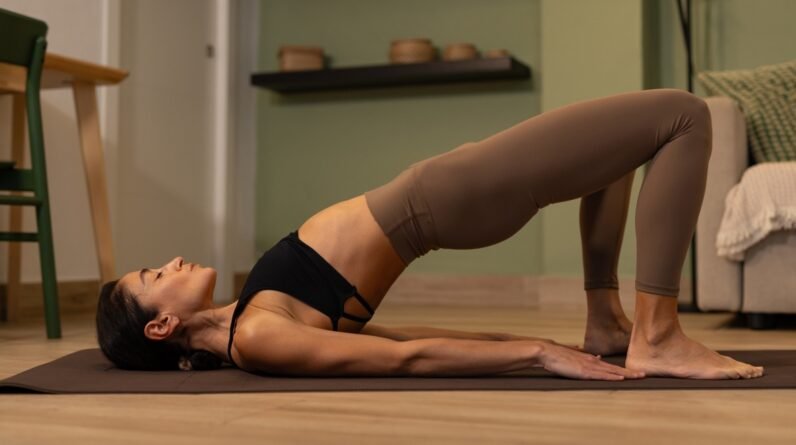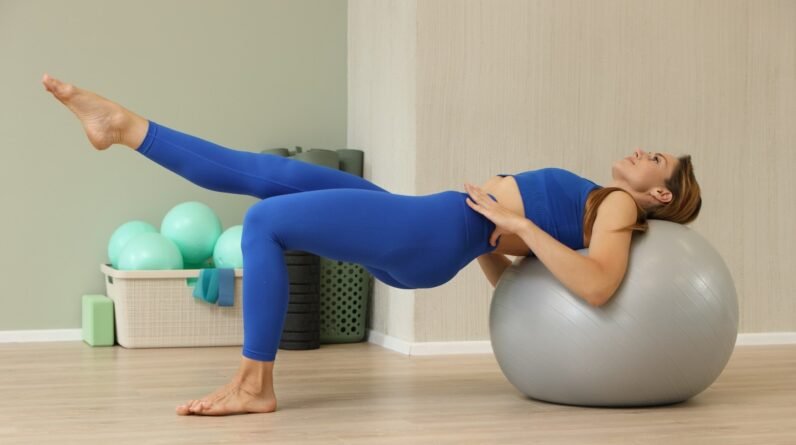
Looking for a fun and effective way to lose weight? The 6-6-6 walking routine for weight loss is a great starting point and it offers these 7 benefits. Know what it is.
Can walking really help you lose weight? Yes. However, your evening strolls might not be the right way to go about this weight loss regimen. When it comes to weight loss, many people think that simply walking is enough to shed those extra kilos. Do you agree? While walking is definitely an effective weight loss exercise, adding a twist can take your results to the next level. Have you heard of the 6-6-6 walking routine for weight loss? This simple yet powerful method is perfect for beginners and can boost the benefits of your regular walks. So, if you are now curious to know how it works and what benefits it offers, read on.
What is the 6-6-6 walking routine?
The 6-6-6 walking routine is a simple approach to walking that involves incorporating the number 6 into your daily routine. “This can mean walking for a total of 60 minutes, either at 6 AM or 6 PM. To maximise the benefits, you also add a 6-minute warm-up session before your walk and a 6-minute cool-down session afterward,” explains fitness expert Varun Rattan. This structured routine helps enhance the effectiveness of your daily walk, improving both physical fitness and overall health while promoting weight loss and boosting metabolism. The 6-6-6 walking routine is an easy-to-follow method to stay fit, especially for people with busy schedules.
How does the 6-6-6 walking routine help in weight loss?
Here are 7 advantages of the 6-6-6 walking routine when it comes to weight loss, as well as overall health.
1. Burns calories
This is one of the most direct benefits of 6-6-6 walking routine. A 2021 study published in Sports Medicine and Health Science revealed that walkers or runners burned 107 calories after walking only 1.6 kilometers (1 mile). The number may vary depending on your weight, sex, and age. When you walk, your body uses energy to power muscles, support movement, and maintain balance. So the more you walk, the more you burn more calories, resulting in overall weight loss.

2. Boosts metabolism
The 6-6-6 walking routine helps boost your metabolism and keep it active throughout the day. Walking raises your heart rate and engages muscles, which burns energy. In the 6-6-6 walking routine, we go on 60-minute walks, twice a day. Since we are walking consistently, this routine makes your body more efficient at processing energy, leading to a faster metabolism. “A higher metabolism means you burn more calories, even while at rest. Over time, this can result in more efficient fat burning, making it easier to maintain or lose weight,” says Rattan.
Know all about the 6-6-6 walking routine to keep you fit and improve well-being
3. Reduces stress
Stress is often one of the major causes of weight gain and a barrier to successful weight loss. When you are stressed, your body releases cortisol, a hormone that can trigger cravings for unhealthy foods and disrupt your sleep. Regular walking, particularly in a structured routine, such as the 6-6-6 walking routine, has been shown to reduce cortisol levels and lower overall stress. Exercises like walking release endorphins, the feel-good hormones, that improve your mood and can reduce the emotional triggers that lead to overeating, suggests a study published in the Journal of Clinical Medicine. As a result, you are more likely to lose weight.
You may also like


4. Promotes heart health
Carrying excess weight, especially around the belly, increases the risk of heart disease and diabetes, according to the AHA/ASA Journal. Walking, a great cardiovascular exercise, helps strengthen the heart and improve blood circulation. Following the 6-6-6 walking routine helps you set a schedule when it comes to walking. This, in turn, reduces the risk of heart disease, lower blood pressure, and boost overall heart function. A healthy heart is key for weight loss, as it improves oxygen and nutrient delivery to your muscles, helping you perform physical activities with ease.
5. Improves insulin sensitivity
Walking is especially beneficial for those with insulin resistance or at risk of type 2 diabetes, according to a study in the Journal of Applied Psychology. The 6-6-6 walking routine can improve your body’s insulin sensitivity, helping it process glucose more efficiently. This means your body uses glucose for energy rather than storing it as fat, leading to better weight management. It also helps prevent excess fat storage, especially around the abdomen, which is often linked to insulin resistance.
6. Good for digestion
Walking directly benefits digestion by stimulating the muscles of the digestive tract, helping food move smoothly through your system. The 6-6-6 walking routine has you walking for 60 minutes in one go, and this can reduce bloating, constipation, and discomfort. A healthy gut also supports a faster metabolism, so you burn more calories even when not working out. Remember to chew each bite thoroughly to aid digestion and improve nutrient absorption.

7. Enhances deep sleep
The 6-6-6 walking routine can improve sleep quality by regulating the sleep cycle and boosting melatonin production. “Walking, especially in the evening, helps calm the mind and prepares your body for deep, restful sleep,” suggests Rattan. Deep sleep is crucial for weight and fat loss, as this is when the body repairs and burns fat, according to the International Journal of Obesity. A good night’s sleep also helps balance hunger hormones, reducing cravings that could slow down weight loss.
Other types of walking for weight loss
Apart from the 6-6-6 walking routine, here are some other types of walking that can help you shed those extra kilos:
1. Brisk walking
It is simply walking faster than usual, around 3 to 4 miles per hour. This increases your heart rate and burns more calories than casual walking, making it an effective way to lose weight while being easy on your joints.
2. Power walking
It is an advanced version of brisk walking. You walk at a fast pace while swinging your arms vigorously. This increases calorie burn and helps tone muscles, making it great for weight loss and cardiovascular health.
3. 8-shaped walking
In this type of walking, you move in a figure-eight pattern. The constant change in direction engages different muscles and challenges your balance, helping you burn more calories while working your entire body.
4. Backward walking
Walking backward can be more intense than walking forward. It engages different muscles, especially in the legs and glutes, and helps improve balance and posture. It also burns more calories and can be a good way to strengthen the knees and hips.
Brisk walking vs reverse walking: Which is better for health?
5. Walking with weights
Adding weights to your walk, like ankle weights or handheld dumbbells, increases the intensity of your daily workout. This forces your muscles to work harder, helping you burn more calories and tone your body. Start with light weights to avoid strain and focus on good posture.
6. Incline walking
Walking on an incline—like uphill or on a treadmill with an incline setting—works the lower body harder than flat walking. This increases calorie burn, tones the legs and glutes, and improves cardiovascular health.

7. Nordic walking
This walking type uses poles to engage the upper body while walking. This full-body workout increases calorie burn and improves posture, balance, and endurance. It is a great way to get a more comprehensive workout.
Along with 6-6-6 walking routine, each of these walking types can also help you lose weight while offering different benefits!
Related FAQs
Is walking with weights safe for beginners?
If you are new to exercise, start with light weights and gradually increase the intensity to avoid strain. Also, avoid weights if you have knee or joint problems. Focus on maintaining proper form to prevent injury.
Can I do the 6-6-6 walking routine if I am a beginner?
Yes, the 6-6-6 walking routine is beginner-friendly. You can start at a comfortable pace and gradually increase your intensity as your fitness improves.
Why is a warm-up and cool-down routine important?
Incorporating a warm-up and cool-down session is very important as it helps prevent injury, improve flexibility, and help your body recover after each session.







